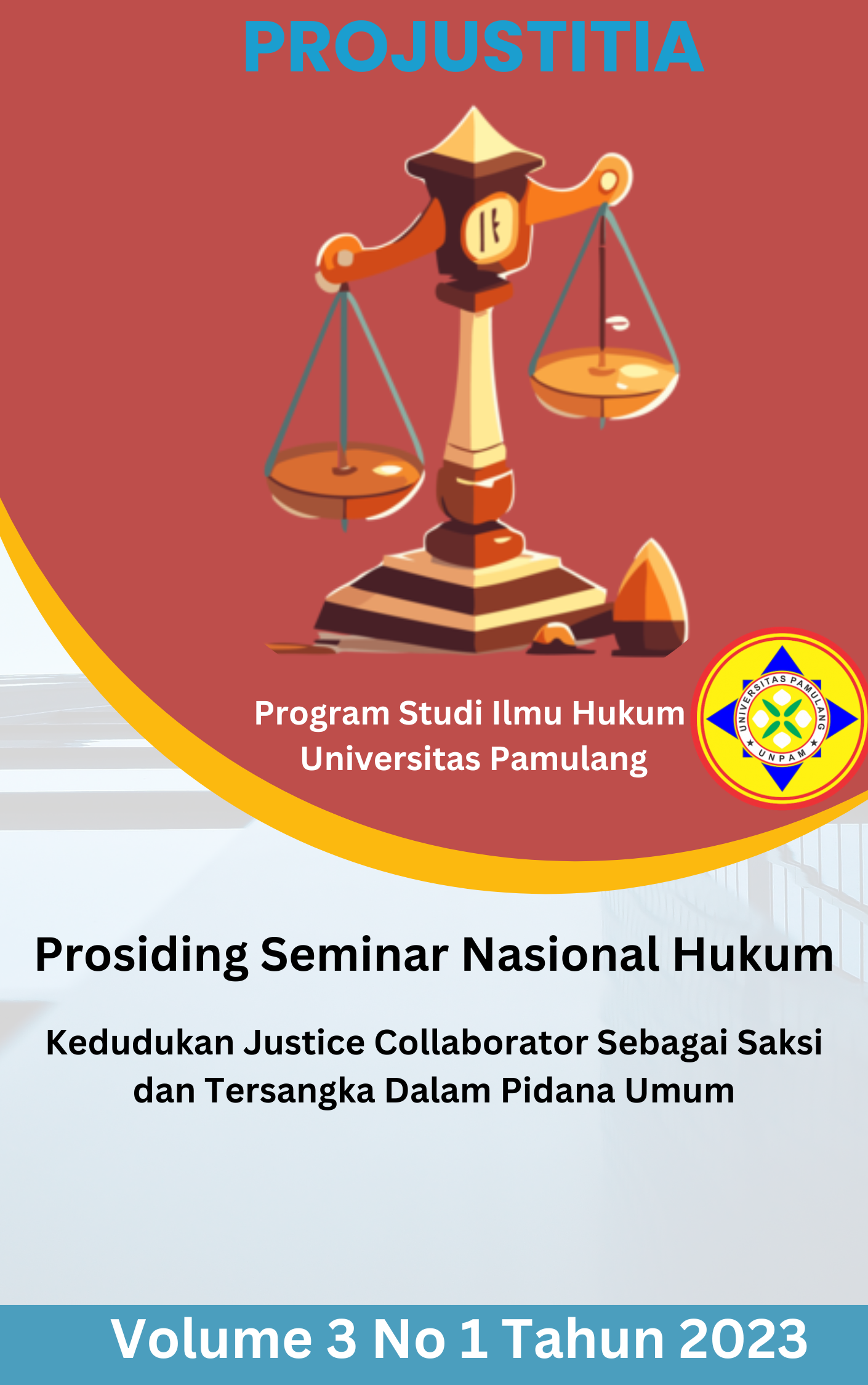IMPLEMENTASI HUKUM DALAM PERKARA TINDAK PIDANA PERZINAAN YANG DILARANG DI INDONESIA DI TINJAU DARI PASAL 284 KITAB UNDANG-UNDANG HUKUM PIDANA (KUHP)
Abstract
There are many impacts of adultery, so adultery is a disgraceful act that deserves to be criminalized. Compliance and observance of social values, norms and religion in Indonesia are increasingly being questioned. The regulation of the crime of adultery in the Indonesian legal system has several elements that are inconsistent with living law in society. Changes in lifestyle in society as an implication of globalization is one of the causes. Adultery is one of the things that causes unrest in society. To eliminate anxiety in society, a discourse emerged to make criminal rules for adultery perpetrators, so that on that basis an assessment is needed on the relevance of criminal rules for perpetrators of extramarital sexual relations (zina). The model for the formulation of the crime of adultery in the 2019 Criminal Code Bill has adopted the definition of adultery from the law that lives in society, although it has not yet considered the perpetrator's marital status and pregnancy as an aggravating element. The method used in this study uses normative legal research methods. Where in normative research a study of law is carried out as a norm, namely researching and studying objects against its legal principles, through a statute approach to laws, as well as a socio-legal and historical approach to sharpen the analysis of legal research materials which aims to know the basics of thinking. Based on the results of the research, the arrangements for the crime of adultery are determined in Article 284 paragraph (1) of the Criminal Code. Article 284 paragraph (1) of the Criminal Code has provided clear limitations that one of the elements of this Article on Adultery is limited to circumstances where one person has been bound by a marriage beforehand or both have been bound by a marriage that is legally valid. Further punishment can be carried out in the event that an act of adultery is committed against a minor as stipulated in Article 287 paragraph (1). Then the relevance of setting criminal acts for perpetrators of adultery when viewed from the point of view of the punishment itself adheres to the joint theory. The outputs targeted in this study are mandatory outputs in the form of accredited national journals.
Keywords: Adultery, Living Law, Implementation.


